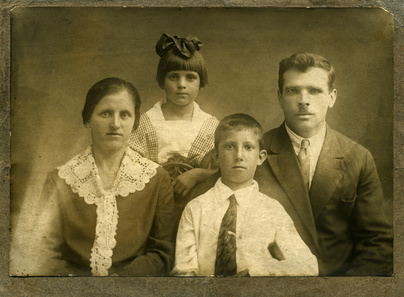 Users of libraries in Ohio have free access to Ancestry Library Edition, “powered by Ancestry.com” and paid for in part by OPLIN, so some recent stories about DNA data collected by Ancestry.com naturally caught our attention. Ancestry has been actively selling DNA kits to genealogy customers since 2012, “…with the aim of providing exciting insights into their ethnic backgrounds,” and now claims to have DNA data from over 1 million customers. But it turns out this data has more uses than just family history research. Who knew genealogy could be so controversial?
Users of libraries in Ohio have free access to Ancestry Library Edition, “powered by Ancestry.com” and paid for in part by OPLIN, so some recent stories about DNA data collected by Ancestry.com naturally caught our attention. Ancestry has been actively selling DNA kits to genealogy customers since 2012, “…with the aim of providing exciting insights into their ethnic backgrounds,” and now claims to have DNA data from over 1 million customers. But it turns out this data has more uses than just family history research. Who knew genealogy could be so controversial?
- How private DNA data led Idaho cops on a wild goose chase and linked an innocent man to a 20-year-old murder case (EFF Deeplinks blog | Jennifer Lynch) “Ancestry.com offered to disclose this information in response to a simple subpoena, but the police got a search warrant instead. This is when the case starts to sound like something out of the TV show ‘CSI.’ Ancestry.com linked the crime scene DNA to DNA from a man born in 1952. That man didn’t fit the age profile of the murderer, so the investigators used the genealogical information to trace his male descendant line and find his son, Michael Usry Jr., born in 1979. Then the cops searched Usry’s Facebook page and found he had some Facebook friends who lived somewhat near Idaho Falls. And then through Google searches, the police learned Usry was a filmmaker who had been involved in making a few short films that had homicide or killings in the story line.”
- Your relative’s DNA could turn you into a suspect (Wired | Brendan I. Koerner) “California, Colorado, Virginia, and Texas have detailed policies regarding how and when familial DNA searches can take place; Maryland and the District of Columbia explicitly forbid the technique. Elsewhere in the nation, cops are largely free to search as they see fit, which is why Idaho Falls police decided it was OK to sift through an Ancestry database of genetic data from thousands of people with no criminal records. Familial DNA searching is only going to get more prevalent as the cost of rapid DNA analysis plummets and the size of genetic databases swells.”
- Ancestry.com is talking to the FDA about using DNA to estimate people’s risk of disease (The Verge | Arielle Duhaime-Ross) “For years, 23andMe sold and advertised — quite loudly — a DNA kit that the company claimed could tell people if they were at a higher or lower risk of developing a disease. But in 2013, the FDA ordered it to halt the sale of its DNA kit because the genetics company had failed to demonstrate the validity of its product. There just wasn’t enough data to support 23andMe’s medical claims. The FDA also faulted the company for failing to provide customers with a doctor’s support — support that could have helped people avoid treating a disease that they might never develop. Because of these issues, the FDA concluded that 23andMe was putting people’s health at risk. That’s the kind of controversy that Ancestry now hopes to avoid.”
- The rise of DIY genetic testing (Smithsonian.com | Emily Matchar) “That route would look something like this: I’d order a $99 autosomal DNA test through a site like 23andMe or Ancestry.com, which promise to tell you your ethnic heritage, but are currently barred by the FDA from giving almost any medical analysis. […] I would then take my raw DNA data and upload it to one of several third-party ‘interpretation only’ web services. These web services, a couple of the most prominent being Promethease and LiveWello, interpret your data for you, spitting out information in a format a layperson can (in theory, at least) understand. This is the outlaw edge of the genetic testing world.”
Articles from Ohio Web Library:
- A new use of ‘race’: The evidence and ethics of forensic DNA ancestry profiling. (Journal of Applied Philosophy, August 2014, p.237-253 | Matthew Kopec)
- The politics of DNA. (Natural History, Dec.2014/Jan.2015, p.22-27 | Christine Kenneally)
- Fast individual ancestry inference from DNA sequence data leveraging allele frequencies for multiple populations. (BMC Bioinformatics, 2015, p.1-11 | Vikas Bansal and Ondrej Libiger)


